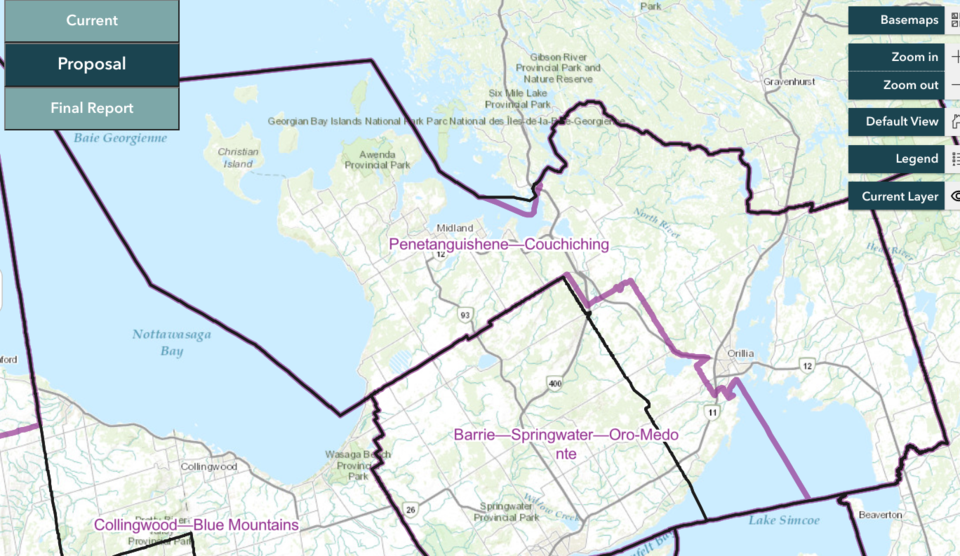Editor’s note: The following column was written in response to a story titled 'What's in a riding name? Commission aims to find out,' published Sept. 5.
At the public meeting on Monday, Sept. 26, I intend to speak against the proposed name change to our electoral riding in Simcoe North.
By defining a community simply by what some would consider the ‘barbells' at its western and eastern geographic poles, a sense of community distinctiveness and identity is lost.
As a public historian, I confess no particular love for the word “Simcoe,” which has had a problematic legacy since 1791.
John Graves Simcoe, although a champion of emancipation for African-Canadians (at a time when this was not universally accepted – slavery existed in the British Empire until 1834) was notoriously less progressive when it came to the First Nations of Upper Canada.
Over the five years he held the title of Lieutenant Governor, Simcoe methodically scoured beautiful Indigenous names from the map and replaced them with those more familiar to the settlers he hoped to welcome in droves: Kotequogong (at the forks) became London, Wahweyagahmah (round lake) became Lake Simcoe, named after his father.
Ironic, perhaps, that his ‘model colony’ now seeks to consign his name – at least in part – to history.
But 'Penetanguishene-Couchiching' is far from an acceptable replacement.
The name Penetanguishene-Couchiching is a mouthful even for residents who have lived and worked in this community for decades; I cower when I think of the way in which non-residents, television pundits and foreign journalists might describe our region.
My own locale – Port McNicoll – of which I am fiercely proud, is deprived of any representation within the new name, and there are good citizens of Brechin, Coldwater, Fesserton, Midland, Orillia, Perkinsfield, Victoria Harbour, Waubaushene, Wyevale… just to begin to name a few, who similarly would fail to identify with such a vacuous nomenclature.
In their superficial survey of place names, the Electoral Boundaries Commission have also neglected to procure input from the FNMI community, and both ‘Penetanguishene’ and ‘Couchiching’ – albeit names with Ojibwe origins – suggest the terminus of our riding mere metres away from both Beausoleil and Rama First Nation respectively. This is an agonizing oversight.
We have been ‘the North part of Simcoe County’ for as long as Canada has been a nation, and perhaps it is indeed time for a change.
But chosen names – like our use of public space – say something about our community, our identity, and quite often our values. We are a diverse and extensive community, and our riding name should reflect this.
No one is suggesting that new riding include the names of every town or village within it, lest by the next election signs may be eight feet high! But the Electoral Boundaries Commission needs to sharpen their pencils a little here, listen to the community and provide more representative options.
Until this happens, perhaps ‘Simcoe North’ can stick around just a little while longer.
Dan Travers is a college professor and the author of two books on public history. Involved with numerous community organizations in northern Simcoe County, he is a proud resident of Port McNicoll.



